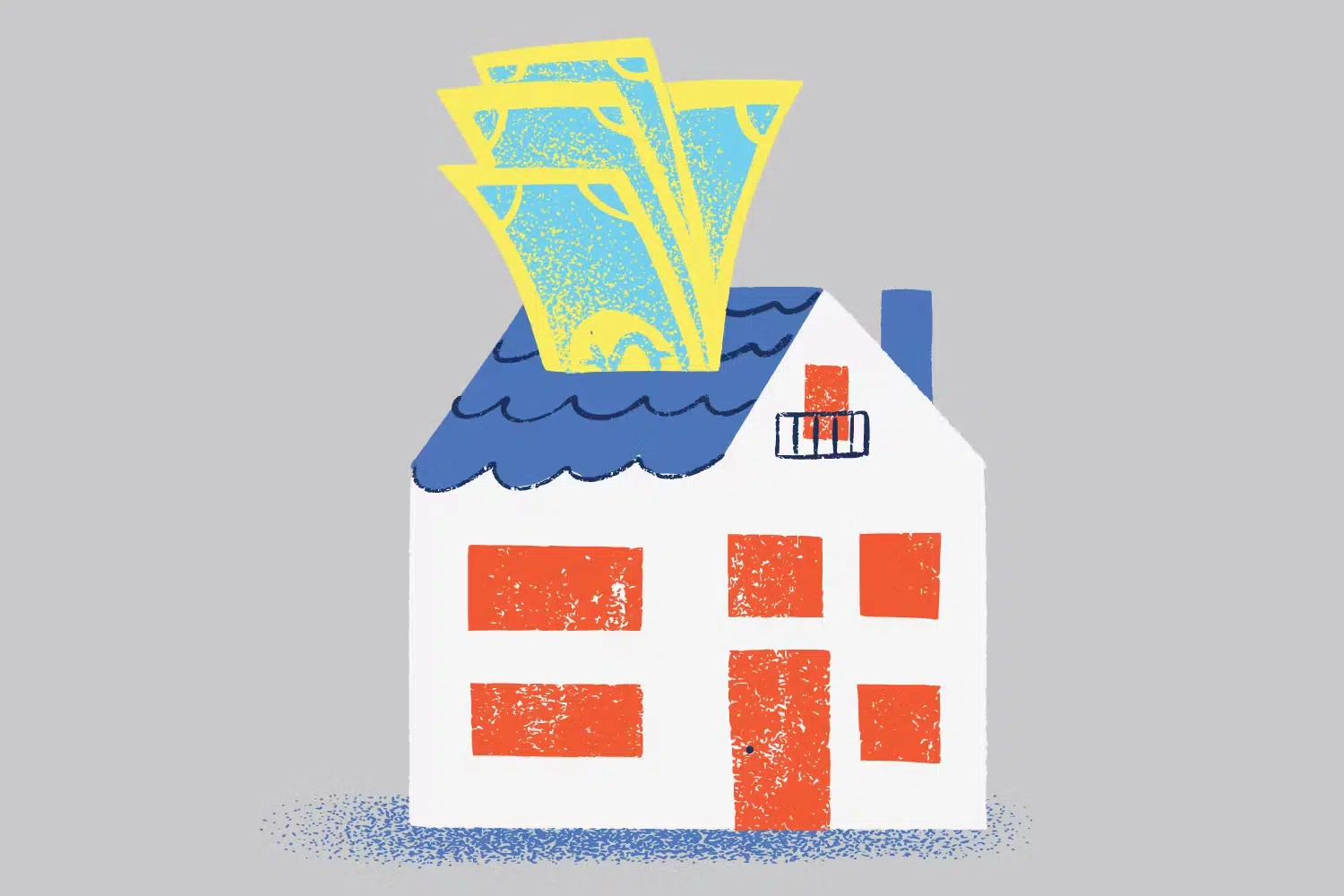
What’s the Difference? Cash Out Refinances vs Home Equity Loans

Looking to fund home renovations, a college education, or debt consolidation? If you’re a homeowner, the answer may be right in front of you!
We’re talking about home equity, a powerful tool that can help homeowners get the funds they need to meet their life and money goals.
Homeowners have several choices when it comes to tapping into the equity in their homes, including home equity loans and cash-out refinances. Compared to unsecured loans, both are relatively easy to qualify for and typically come with more favorable interest rates.
In simple terms, the difference between the two comes down to the process: a home equity loan is separate from your mortgage, and a cash-out refinance replaces your current mortgage with a new mortgage loan.
If you live in Texas, there are some additional nuances and laws involved with home equity and refinances—so let’s dive in!
From Refinancing to Home Equity Loans
Our local, award-winning lending team is ready to help you begin today.
Home Equity Loan
A home equity loan is a loan— separate from your mortgage— that uses your home as collateral. Home equity loans are available only to homeowners who have built up equity in their property, by either making payments on their mortgage or through the appreciation of the property’s value.
Cash-Out Refinance
A cash-out refinance is another way to access your home equity.
A refinance involves taking out a new loan to pay off an existing one. When you do a cash-out refinance, you borrow more money than you owe on your current loan and use the extra cash to pay for other expenses.
Depending on the housing market, a cash-out refinance may also give you access to better terms or a lower interest rate. Keep in mind that if you have a government-backed loan such as a VA, USDA, or FHA loan, you’ll most likely refinance to a conventional loan.
To give you an idea of how these loans compare side-by-side, we’ve broken down some of their key features in the chart below.
| Home Equity Loan | Cash-out Refinance | |
|---|---|---|
| First Mortgage vs. Second Lien | If you still owe money on your home, you’ll continue paying the same mortgage in addition to your home equity loan payments. | A cash-out refinance is not a second mortgage. It will replace your first mortgage with a new loan. |
| Loan Amount | Home equity loans often have minimum amounts that you must borrow.Loan amounts are limited by the amount of equity you have in your home and Texas home equity laws. | Loan amounts are limited by the amount of equity you have in your home and Texas home equity laws. |
| Closing Costs | Texas law caps home equity closing costs at 2% of the total loan amount. However, some lenders opt to charge a low-cost flat rate. | Texas law also caps cash-out refinance closing costs at 2% of the total loan amount. This does not include survey, appraisal, and title fees. |
| Interest Rates | Home equity loans typically have favorable interest rates compared to unsecured personal loans.Interest rates are determined by personal factors like credit history and general market conditions. | Because cash-out refinances sit in the first mortgage position, they often have better interest rates than home equity loans.Interest rates are determined by personal factors like credit history and general market conditions. |
| Repayment Terms | Home equity loans offer a greater variety of term lengths, ranging from 5 years to 30 years. | Because they are like traditional mortgages, cash-out refinances are generally available in only 15-year or 30-year terms. |
| Loan Use | The borrower may use proceeds for any lawful purpose. | The borrower may use proceeds for any lawful purpose. |
| Home Appraisal | Lenders will require a home appraisal before approving a home equity loan. | Lenders will require a home appraisal before approving a cash-out refinance. |
Home Equity Loan and Cash Out Refinance Rules in Texas
Texas has special rules when it comes to home equity and borrowing—and they can be complex. We always recommend talking to a local real estate lender when considering how these rules affect your financial situation.
Here are a few things that apply to both home equity loans and cash-out refinances.
1. You must pay off all second liens on your home before you can refinance.
If you already have a home equity loan or other type of second lien on your home that hasn’t been paid off, you will be unable to get a cash-out refinance.
2. You can’t take out a home equity loan after a cash-out refinance.
Texas law says that if you tap into your home’s equity, you can’t do so again until you’ve paid off the first loan. So if you do a cash-out refinance, you can’t take out a home equity loan until the mortgage is paid off.
3. You can only take out one equity loan every 12 months.
Even if you repay your first home equity loan or cash-out refinance, you can still only tap into your equity once per year. This is important to keep in mind if you think you might need another loan a few months down the road. If you think you may need more money down the line, a home equity line of credit may be a more suitable option.
4. Borrowers cannot use more than 80% of their home’s equity.
Remember how we said earlier that the amount borrowed is limited by the amount of equity you have? It’s important to note that you can never borrow against all of the equity you have in your house.
Texas law says that borrowers cannot tap into more than 80% of their home’s equity— even if the home is owned outright. In other words, 20% of your home equity must be free at all times.
So, for example, if you have a home that is worth $300,000, and you have 100% equity in the home, the largest home equity loan that you could obtain would be $240,000— leaving you with the loan plus 20% equity in your home.
Assess Your Situation for the Right Loan
Both cash-out refinances and home equity loans can be great options for tapping into the equity in your home. The best option for you will depend on your individual circumstances and overall market conditions.
- If you need a large amount of money for a one-time expense, such as home renovations or medical bills, then a home equity loan may be the best option for you.
- If you would benefit from a new mortgage because of terms or a lower interest rate, then a cash-out refi may be the better choice.
- There is also another choice: a home equity line of credit. If you’re reluctant or don’t need to take out a new loan, this might be an excellent solution for you and your finances.
Deciding how to use your home equity can be complicated, but it doesn’t have to be difficult! Talking to a local lender is a great way to get a complete view of how you might be able to leverage your home’s equity.
Harness the power of your home’s equity.
Home equity is a powerful tool. Get the funds you need to meet your life and money goals.


